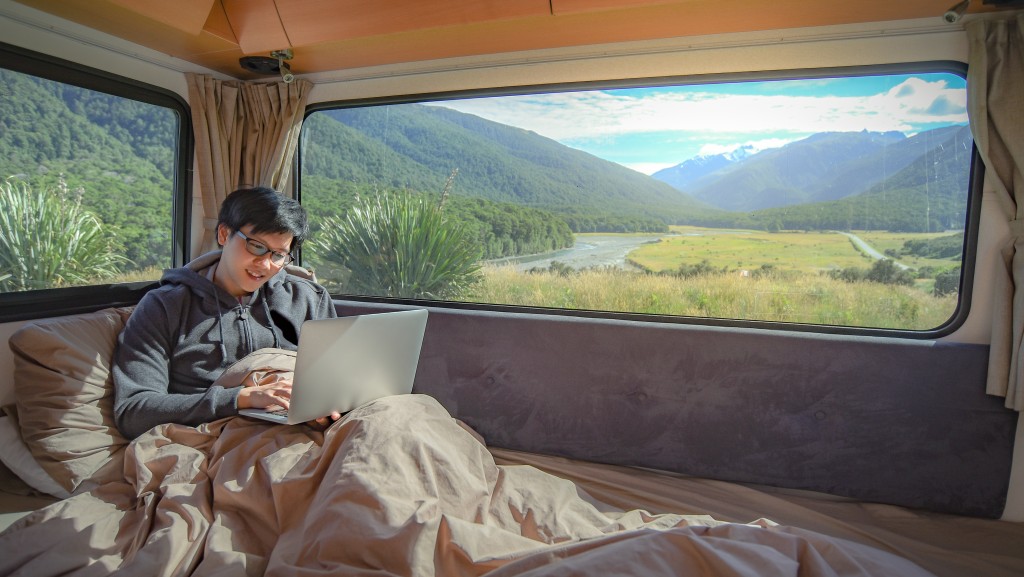When traveling became highly popular, it evolved from being a hobby to being a full-on lifestyle. Stories of people who sold everything they own to live as nomads blew up on the internet. Needless to say, they have inspired many travel enthusiasts to consider living the same lifestyle too.
Indeed, it’s tempting to leave everything behind and settle in a quiet, peaceful place where you can get close to nature anytime. Imagine living in a beach house, eating fresh seafood often, and waking up to the sound of crashing waves every morning. It’s no doubt more relaxing than your daily commute.
You can also experience different forms of nature every few weeks or so, like what RV dwellers do. As the seasons change, you’d also switch locations. For example, the beach every summer, the woods every spring, the mountains every fall, and the lakeside every winter.
But a nomadic lifestyle isn’t always rainbows and sunshine. For one thing, giving up all your possessions would impact you emotionally. For another, it might take a while before you become financially secure.
That said, here are the other cold hard truths about the nomadic lifestyle:
1. It won’t automatically result in work-life balance.
You won’t live in a busy city as a nomad. Instead, you’d choose a fairly untouched location like a rural beach towns or hill. However, as beautiful as those places are, their internet connection is hardly reliable.
A typical day of a nomad can go like this: They’d wake up, get ready for work, and take their laptop and other gear with them to a nearby coffee shop. But sometimes, the nearest coffee shop doesn’t have a reliable internet connection either, so they’d venture out to the city to find a better establishment.
Ultimately, despite abandoning the city life, chances are you’d still rely on their resources to sustain your living. For that reason, being a digital nomad is less about partying than it is about working.
But compared to a traditional 9-5 desk job, remote work still tops. It’s true that such work will allow you to explore different places without compromising your productivity. As long as you can obtain a speedy internet connection, the digital nomad life won’t fail you.
If you’d rather not deal with the limitations of a sluggish internet, you can choose a home-based job and live somewhere permanently, instead of in an RV or hostel. That way, you still get a lot of work done while enjoying the sanctuary of your abode.
2. Having passive income is advantageous.
If you’re going to sell all your urbanite possessions, such as your house and car, you may get a good financial head start. A cash buyer can buy your house fast without troubling you with pesky paperwork. In turn, you can invest the sales proceeds where it would yield great returns over time.
But considering that a passive income takes time to become useful, it isn’t reliable for your day-to-day living and short-term goals. Besides, not all passive income gigs are good for nomads, like pyramid schemes or any other get-rich-quick systems. Rather than those, you have to look into insurances, stock trading, real estate, and small businesses to build passive income. Once you’ve grown your wealth, you may use it to retire earlier, and enjoy the rest of your nomadic life without worrying about your money anymore.

3. You may still get lonely.
Many people think that traveling will expand their network. While they’re not wrong, the people you’d meet from your travels won’t necessarily become your long-term friends.
Because you’re moving from one place to another, it would be hard to form deep friendships. You might feel less lonely if you’re living with your partner or spouse, but still, we need the company of other people from time to time. And nomads hardly get that if they can’t bond with a particular group for more than a week’s time.
Working from home — meaning a permanent living space — may reduce your likelihood of becoming lonely. You can form friendships with your neighbors and expect your bond to grow intact. So if you’re an extrovert who thrives in tightly-knit groups, consider which one between working from home or being a nomad suits you better.
4. You may become the future of remote life.
On the brighter side, working from home or being a digital nomad makes you less vulnerable to health crises such as the COVID-19 pandemic. You’ll likely retain your job when countless others lose theirs. You can still work on the same hours you’re used to, and even get paid the same rate. In fact, your work setup may become the new normal sooner than you expect. Considering that COVID-19 won’t be the last pandemic we’ll experience, more companies started shifting to remote work for the long-term.
A nomadic lifestyle may still become restrictive during tough circumstances, but the fact that you’re living somewhere peaceful and beautiful is enough to compensate. True, it’s not rainbows and sunshine every day. But its simplicity will teach you to appreciate the more important things in life, which you tend to forget in the hustle and bustle of the city.
